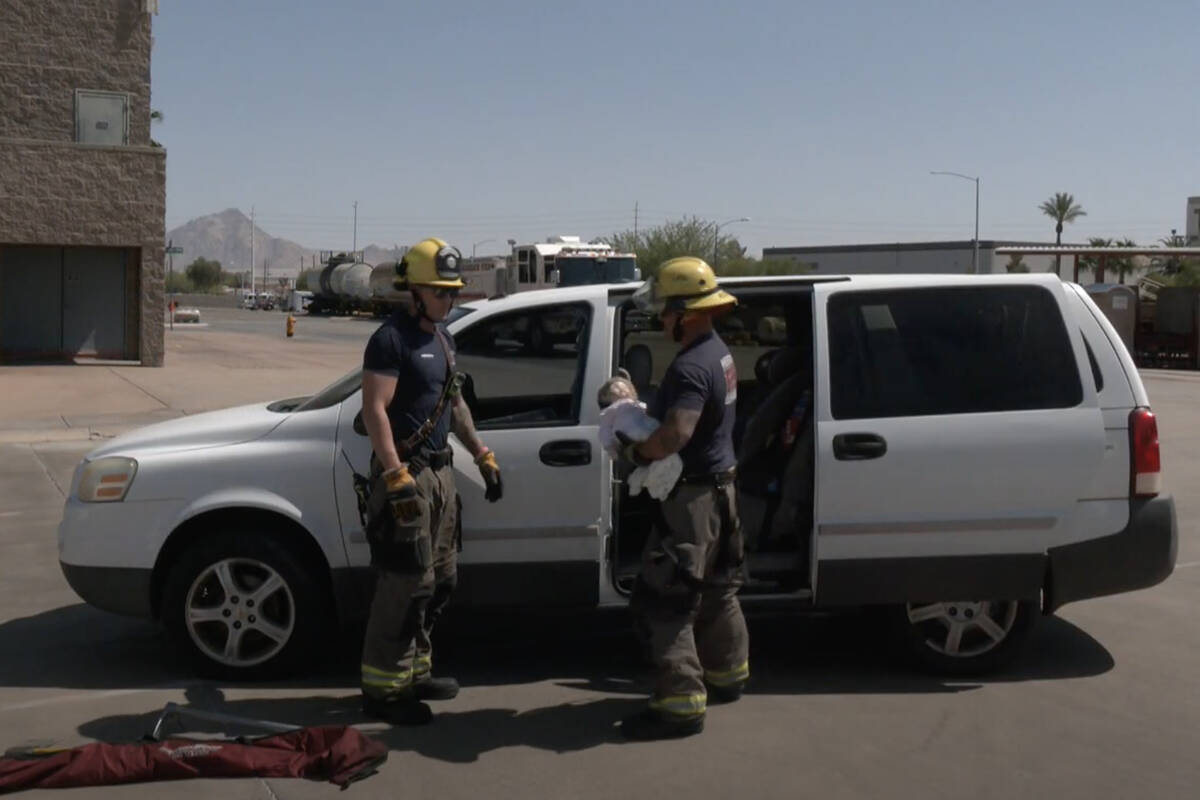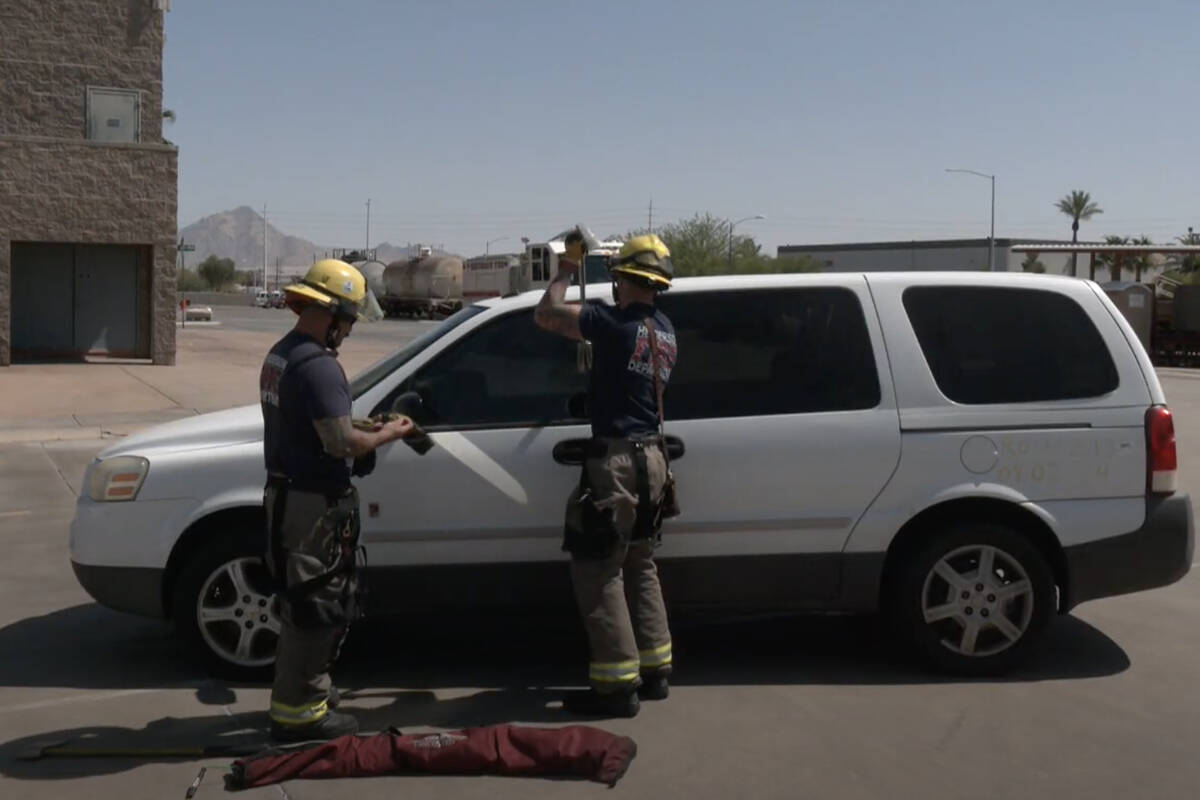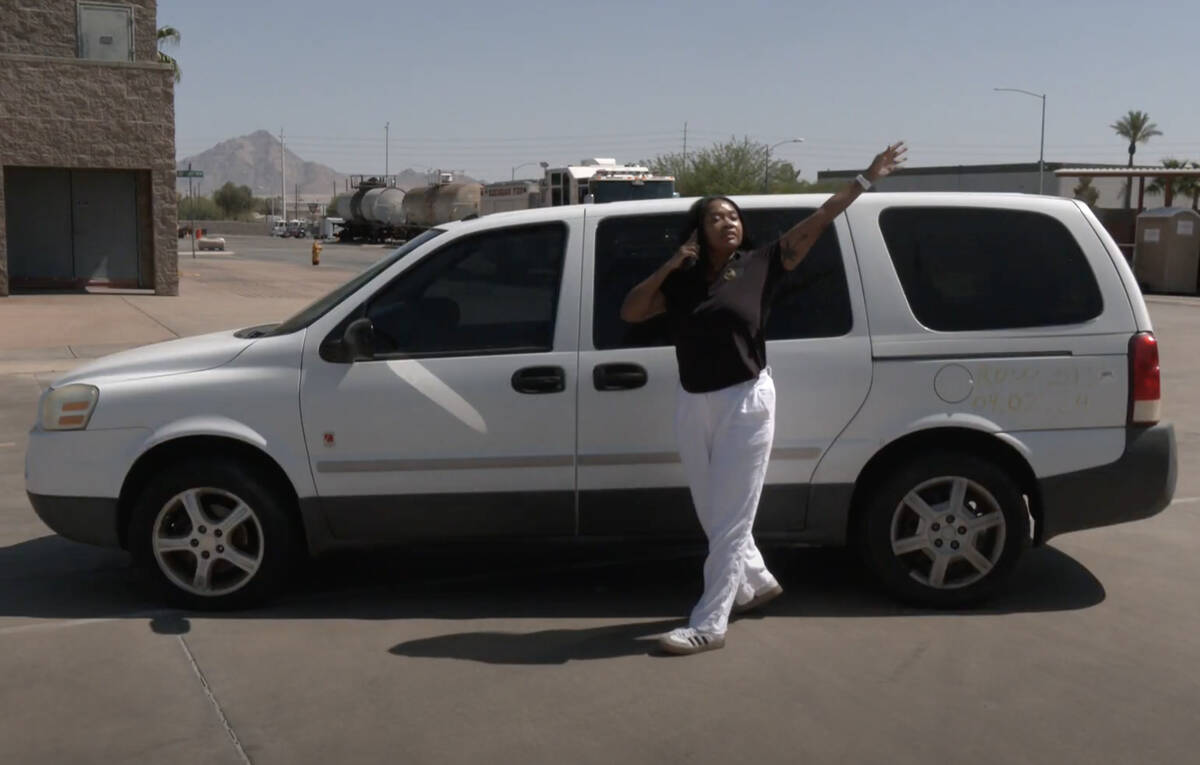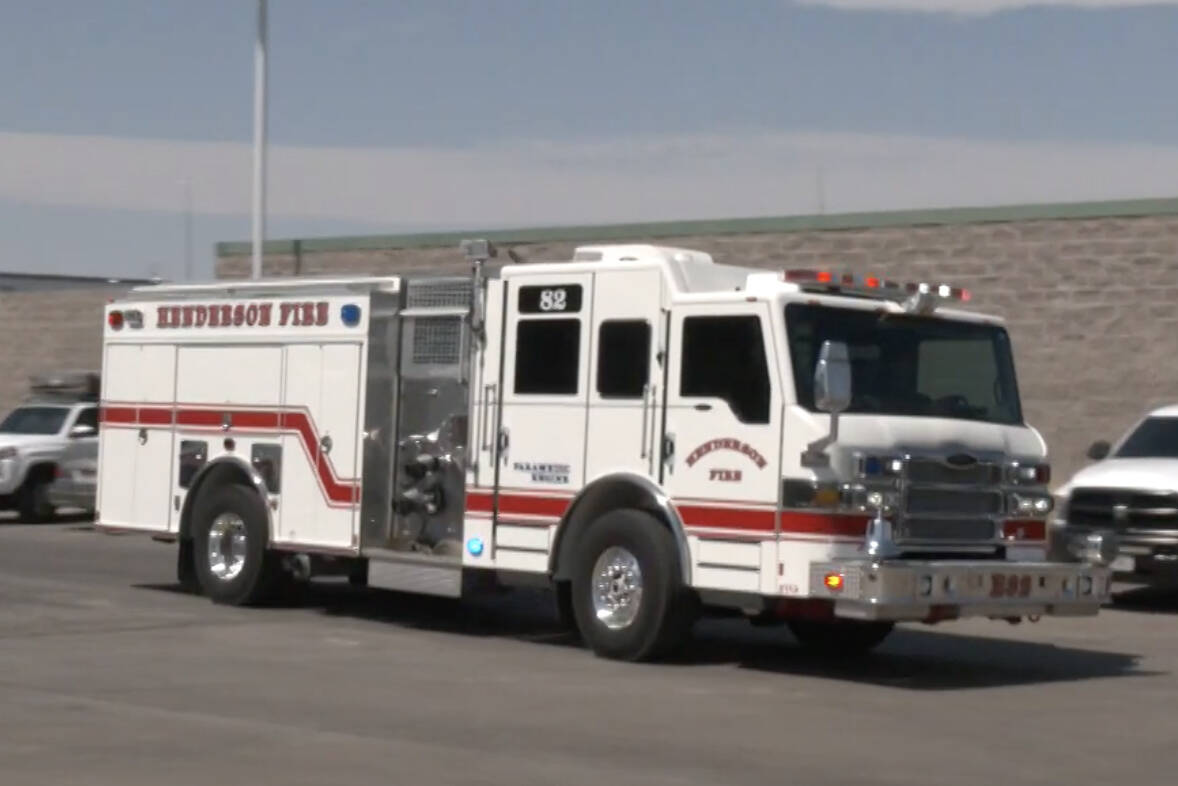A hot car can kill a child. Here’s how firefighters respond
Outside an old Saturn Relay minivan, a young woman was in distress.
“Oh no! My baby is locked in my car! Please call 911. Please call 911,” she called out.
Soon, a Henderson fire truck and ambulance responded, red and blue siren lights flashing. Fire personnel used a halligan tool to smash the driver’s window and then opened the back door. They lifted a child out and carried her to an ambulance, where they put her on a stretcher and pressed ice packs on her. Then they put the stretcher in the ambulance and drove away, sirens blaring.
But this wasn’t an actual child or an actual mother in distress. The child was a doll. The mother was Tia King, a social media strategist for Trosper Public Relations, the firm promoting the Thursday event at which the re-enactment took place.
The demonstration, which showed how authorities respond when they get a 911 call that a child has been left in a hot car, was part of the annual Check Your Seats in the Heat campaign organized by the Henderson Professional Fire Fighters union with the city.
According to the National Safety Council, an Illinois-based safety advocacy nonprofit, 29 children died in hot cars in 2023. Since 1998, 14 kids have died in hot cars in Nevada.
In October 2020, 1-year-old Sayah Deal died after she was locked in her father’s car. Prosecutors said Sidney Deal had prevented his brother and police from breaking into the vehicle. Deal was sentenced to probation and 30 days in jail.
And in July 2017, 3-year-old Chase Lee of Utah died in a car in Las Vegas. His family was visiting from out of town and left him behind, police said at the time. Police said the temperature in the car might have been as high as 170 degrees.
In Henderson, this kind of call comes in every day, said Dan Pentkowski, the union’s president and a Henderson fire captain. And they’re preventable, he said.
“The majority of heat-related deaths result from parents simply forgetting they have their child in their car,” Fire Chief Shawn White said. He encouraged parents to keep their cars locked and leave something like a phone or briefcase in their back seats so they don’t forget their kids.
The temperature in a car can increase up to 19 degrees in 10 minutes, said Mark Zonfrillo, a Brown University medical school professor who studies injury epidemiology and prevention. Children’s bodies warm faster than adults, and after they reach 107, their internal organs can start to shut down.
Pentkowski said if you see a child in a hot car, you should call 911. It’s legal to break a window if necessary, he added.
For Councilwoman Carrie Cox, the issue is personal. Over 20 years ago, on a July day when temperatures reached about 110, she accidentally locked her 12-month-old boy in her car. The car had an electrical short, and her child, who could not unbuckle himself, was trapped. He was sweating, screaming, and struggling to breathe. She was hysterical. She called the fire department, and it took about 10 minutes before he was rescued. He had to be treated in the hospital.
“That experience forever changed my life,” she said.
Contact Noble Brigham at nbrigham@reviewjournal.com. Follow @BrighamNoble on X.




















